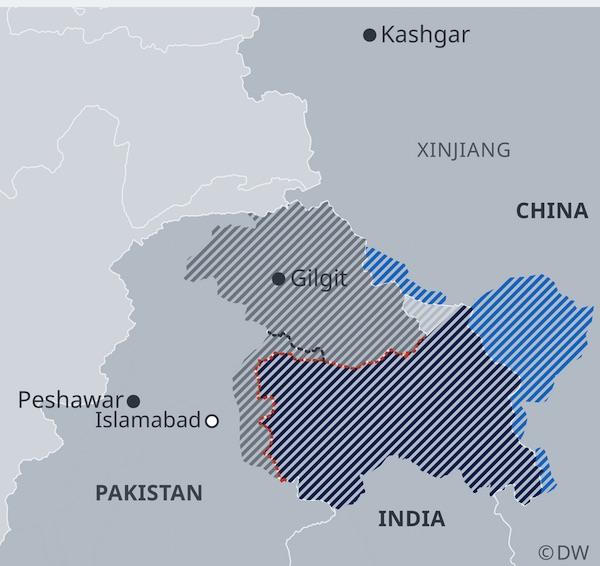I had earlier posted a short version of this review, to which many people objected that it was not really a review, just a short rant. Major Amin has now sent a longer version. I hope this will satisfy some of the critics…
The Anarchy-
William Dalrymple
Book Review
By Major Agha H Amin 
Dalrymple is not a serious historian but a highly skilled jester who plays to the gallery. He makes many factual errors in his book and frequently gets carried away by emotions. promiscuously mixing facts with fiction.
On page 12 there is a small typing error placing third mysore war victory of Cornwallis in 1782 rather than 1792:
In describing Aurangzeb on page 13 Dalrymple misses the most essential fact that it was the Hindu Maratha Insurgency that laid the foundation of the decline and fall of the Mughal Empire. In this regard, other groups such as the Rajputs etc were mickey mouse players; the real hero of Hindu resurgence was Sivaji.
Dalrymple describes Mohammad Shah in very derogatory terms, but fails to
note that under his shaky tenure the Mughals still defeated Ahmad Shah Abdali at Sirhind in 1748.
The battle of Buxar took place in 1764 and not in 1765 as Mr Dalrymple states on page-16.
On page 60 Dalrymple fallaciously states that Bhonsle was incharge of Orrissa whereas the Bhonsla citadel was many hundred miles from Orrissa to the west in Nagpur.
Dalrymple is addicted to fantasies (playing to the gallery), thus he projects the Mughals as the height of civilization while these so called civilized Mughals in 1719 publicly tortured Banda Bahadur’s five year old son, gouging out his heart while the child was alive and shoving it in his fathers mouth !
Nadir Shah did not invade Afghanistan in 1739 but in 1738 via Helmand, a long way from Delhi, but our brilliant and careless writer states he did so in 1739.
Dalyrmple totally misses one of the great betrayals in Indian history at Karnal, where Nadir Shah of Persia on the prompting of Nawab of Avadh Saadat Khan decided to pillage and plunder Delhi after an initial agreement to return to Persia after being paid a relatively small fine.
Dalrymple spents great energy on vilifying the company for the famine of Bengal of 1770, but fails to reconcile the fact that a far greater famine broke out in Bengal under the British crown. In general, jis treatment of events reeks
of extreme polemics and subjectivism.
Even worse is his treatment of military events, for example in describing the First Anglo Mysore war he glorifies Hyder Ali but fails to note that he lost in several pitched battles against Colonel Smith and won the war only because of lack of cavalry by the company as well as the extreme corruption of various company officials.
Dalrymples treatment of military history in general is atrocious. For example, in discussing the Second Anglo Mysore War he only discusses one battle (Pollilore) but totally ignores the fact that Hyder Ali was repeatedly defeated
at Porto Novo , Sholingur etc by Sir Eyre Coote.
Dalrymple totally ignores the fact that while the company lost one battle in 1780, the war continued till 1784 and was inconclusive in spite of Hyder Ali’s superior cavalry and the company’s corruption.
Dalyrmples use of historical facts is generally one sided and extremely biased. This is not a one-off, but a pattern. He cherry picks and higlights what fits his narrative, ignoring or downplaying what does not.
Ahmad Shah Abdali never went to Delhi in 1762 so Dalrymples claim that he ousted Imad ul Mulk in 1762 is incorrect (page-259 ).
By and large the book is a repetition of well known facts of British Indian history, framed tendentiously to fit his narrative. Basically Dalrymple has wasted a book in vain as it brings out nothing new. His whole conclusion about the company and the title of the book “Anarchy” is extremely questionable and
debatable. Firstly the English East India Company did not cause anarchy in India as Dalrymple repeatedly tries to prove. India was already in a state of complete anarchy when the British company became a serious player. They took advantage of this anarchy, they did not cause it.
Delhi was sacked more than 40 times between 1737 and 1800 by non British forces, but Dalrymple is blind to this as it does not fit the narrative he wants to project. All the bad things he sees are only to be found in English East India Company. This will no doubt delight his nationalistic (or guilt-ridden English) readers, but it is a very questionable framing of 18the century Indian history.
His military knowledge is myopic and he constantly distorts military history and uses bits and pieces to prove or disprove as he wills at whim.
As a matter of fact the company restored order in India .The first three universities in Indian history were founded at Calcutta ,Madras and Bombay in 1856-57 by the Company. Outmoded customs such as widow burning , infanticide etc were abolished by the company. A hereditary class of feudal lords was created by Lord Cornwallis in 1792 as a result of which political
stability was introduced and strengthened in India. The company had many reformers, philanthropists and utilitarians but Dalrymple in his irrational hatred is blind to all these people.To Dalrymple all that British East India Company did
was bad and he has an extremely jaundiced and twisted vision, not an objective view of history.
Dalrymple gives no weightage to the fact that British parliament and system prosecuted Clive and Warren Hastings and tried to regulate company rule in India. They were not angels, but they were not the uniquely villainous source of all evils in India. Above all Dalrymple forgets that without the driving spirit of corporate enterprise of the company the British would never have conquered India. While personal interest has constantly dominated human conduct in history , whether it was a company or a state , Dalrymple wears coloured glasses and his perception is cloudy as well as confused.
Finally, my most serious issue with Dalrymple is his overly simplistic sweeping judgements. The Mughals for example were as big opportunists and greedy rulers as the company.They were a small group of adventurers, kicked out of central Asia, who captured India or north India just like the British company because of superior military tactics. If you look at Mughal contributions you find a few grand monuments such as the Taj Mahal or Shalimar Bagh in Lahore! Whereas the British company gave India , irrigation , universities, a
sound military system , a system of governance and a class of hereditary feudals who made the system more stable, relative to the times.
Another point that Dalrymple totally misses is that the company saved the Indian Muslim elite from total political extinction . The Muslims were practically nobodies by 1800. Delhi was ruled by the Marathas, Badshahi mosque of Lahore was a horse stable and a powder magazine! The Marathas
and Sikhs totally dominated north India! But a knight in shining armour comes and saves the Indian Muslim elite. It was Lake who saved the Muslims of Delhi from extinction! Hugh Gough saved the Muslims of Lahore and Peshawar! But Dalrymple misses out all these things.
Dalrymples most serious failure is that greed and avarice is not a British company failing but a human failing and all Indian rulers were guilty of this just as much as the EIC. Dalrymple fails to appreciate that Indians gladly
fought against Indians under the company because the company paid salaries in time !
Dalyrmple fails to note that British company]s triumphs were triumphs of organization, such as when Lieutenant Flint repeatedly defeated Tipu Sultan with a 100 % Indian force at Wandewash.Dalrymple fails to appreciate that
India was conquered by an organizationally superior company using 80 % Indian manpower! Why Indians followed them if they were as plainly evil as Dalrymple believes or wants us to believe !
And finally, Dalrymple fails to relate this past to what happened after the British left. Pakistan, where I live, is one of the most corrupt states in the
world .Pakistans tax officials of the so called FBR are 1 billion times more corrupt than the English East India Company could be in their wildest dreams. Parochialism is such that in todays Pakistan the entire ruling establishment consists of few districts and few castes of North Punjab and small parts of Sindh!
Characters like Dalrymple thrive on emotional manipulation which is why Dalrymple needs to be questioned and refuted!



 Another BP Podcast is up. You can listen on
Another BP Podcast is up. You can listen on